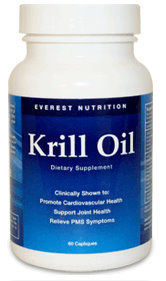Dr. Seuss, omega-3s and brains!
I am not jumping on the Dr. Seuss bandwagon, I promise! But when I ran across this study on omega-3 fatty acids, the aging brain and memory, the following lines from Oh! The Places You’ll Go came to mind:
You have brains in your head. You have feet in your shoes. You can steer yourself any direction you choose. You’re on your own. And you know what you know. And YOU are the one who’ll decide where to go…” — Oh! The Places You’ll Go. Dr. Seuss
Damn our aging brains, right?! Coupled with waning hormones, daily stressors and even weight gain, and many women of ‘a certain age’ are left with a veritable mindless meld cognitive decline and memory issues that only seem to worsen over time. And there’s nothing that can be done.
Think again. Researchers say that low levels of omega-3 fatty acids may accelerate the rate at which our brains age and even cause lapses in thinking and memory. This latest bit of information comes from an analysis of from 1,575 women participating in the ongoing Framingham Study. Women in this portion of the study (who were, on average 67 years old) had their blood drawn and examined for concentrations of omega-3s in red blood cells, underwent brain MRI, and participated in battery of cognitive-psychological tests. The findings? Those with the lowest levels of docosahexaenoic acid (DHA) had lower brain volumes compared to women who had higher levels. According to one of the lead study investigators. Dr. Zaldy Tan, this distinction “is equivalent to about two years of structural brain aging.” Moreover, lower DHA and ecosapentoic acid (EHA) levels were also linked to declines in the ability to solve problems, multitask and think abstractly – all of which are tied to visual memory and so-called “executive function,” a concept that refers to the ability to connect past experiences with present action. Humans use executive function to plan, organize, strategize, focus and remember details and manage time.
These findings are critical because they add to a growing body of research that show that omega-3 fatty acids are essential for brain health, possibly due to their positive actions on blood vessels in the central nervous system. In fact, clogged arteries and stroke are associated higher risks of dementia and cognitive decline, so the benefits of omega-3s may relate to how they can help to lower blood pressure, reduce stroke risk, decrease inflammation and reduce blood fat levels. The ongoing question is always diet versus supplements. And while diet is sure to improve the body’s concentrations of omega-3s, it can be difficult to maintain the three times a week regimen.
Personally? I have gravitate towards Krill oil because it doesn’t cause the ‘burps’ and is environmentally friendly. But as a dietician friend recently pointed out to me, the levels of DHA in Krill oil are relatively low, meaning that if I want to slow down my aging brain, I may need to find sources of DHA to supplement what I’m already taking (e.g. from seaweed or coldwater fish).
Dr. Seuss made it abundantly clear that we have choices and it is those choices that will steer the direction we go. Want to save your brain? It looks as though the addition of omega-3s might help.
Read MoreFish oil. One of these is not like the others…
[Photo credit: Australian Government Department of Sustainability, Environment, Water, Population and Communities. Australian Antarctic Division. ™2004.
Fish oils. Love em or hate em, they’re here to stay. And researchers will continue to research the hell out of these substances — namely omega 3 fatty acids — until they solve the question of ‘do they or don’t they?’ Meanwhile, true confession: as much as I’ve attempted to take fish oil supplements or flaxseed oil per health practitioner recommendations, I’ve always failed horribly. It’s the burp factor. They make me burp and I taste fish all day long. Can’t stand it. Or Stomach it. Or something.
And then I was contacted by the folks over at Everest Nutrition Corporation about its krill oil supplement. And I’ve been reborn.
Let me give you a brief overview of omega-3s and then the lowdown on krill. And why I’ve been converted.
Early last year I wrote a post on research that examined if some of the most commonly used ingredients in supplements may or may boost certain components of mental energy. Here’s an excerpt (although if you’d like to read the post in its entirety, you can find it here):
Omega-3 fatty acids I love fish oils. Researchers continue to study them because their utility is so broad, although the source of omega-3, dosage and ratio of EPA and DHA appear to be important factors in terms of mood (i.e. depression in particular) and mental energy. Overuse of fish oils can also impair the ability of blood to clot and depress overall immune functioning. Still, out of the dietary components that researchers studied, omega-3′s were by far the one most backed by clear data. Most recently, they’ve also been shown to help prevent stroke. In so far as mental energy goes, the researchers note that evidence suggests that fish oils may help delay or reduce cognitive decline in the elderly or improve verbal fluency. Less clear is whether this benefit is stronger if the they are taken earlier in life before cognitive decline. And of course, there is litte agreement on whether or not fish oils supplements convey the same benefits as obtaining the through dietary sources. And, if you choose to obtain your omega-3s through supplementation or pure oil, there is the issue of overfishing of the world’s oceans and how fish oil preparations may contribute to the problem.
So what about fish oil supplements derived from krill?
Krill are small, shrimp-like crustracean that feed on microscopic organisms in the ocean called phytoplankton. Compared to other sources of omega-3s, krill is in less danger of being overfished, one reason why it is so attractive. However, the omega 3s in krill oil attach themselves to fats the form cell membranes (phospholipids), rather than triglycerides, which theoretically makes krill derived omega-3 fatty acids more effective reducing fats in the heart and liver. Another benefit of krill oil is that it contains an antixidant called astaxanthin, which helps protect the body from damage by UV rays, and can help reduce LDL-cholesterol levels while raising HDL-cholesterol levels. Moreover, astaxanthin crosses the blood brain barrier, meaning that it might be of use in protecting eyes, the brain and the central nervous system from circulating free radicals.
However, buyer beware! Not all krill oils are created equal and you want to be certain that what you’re buying meets the highest standards in terms of:
- Meeting content claims about levels of ecosapentaenoic acid (EPA), doxosahexaenoic acid (DHA) and phospholipids
- Meeting claims about how much astaxanthin is delivered per capsule
- If the formulation meets standards for purity, safety and cleanliness per International Krill Oil Standards (IKOS)
- If the product is stable
- If the product meets the standards for contents of heavy metals and mercury
You also need to know that krill oil should not be taken by people with shellfish allergies. Additionally, some people report having gastrointestinal issues, e.g. diarrhea, loose stools when taking krill oil; this is due to the fatty acid that is present in the oil, and may be alleviated by taking a lower dose. Like other forms of fish oil, krill oil may also thin the blood and impair its ability to clot, and in some cases, may interact with thyroid medication. Pregnant women should speak to their doctors before trying krill oil.
Like many other forms of omega-3 fatty acids, krill oil can be expensive. A 30-day supply of Everest Nutrition’s Krill Oil costs roughly $30 a month, which comes out to $1 a day or $.50 a capsule.
So, what do I think? I’m a believer. I have had physicians and other healthcare practitioners recommend that I take fish oil for as long as I can remember. And I haven’t because of the burp factor. I’m grateful to have discovered krill oil. And I highly recommend Everest Nutrition’s formulation, primarily because the manufacturer adheres to the highest of standards.
[Disclaimer: I was not paid to write this review of Everest Nutrition Krill Oil. However, company representatives did provide me with product to try.]
Read More
And then the power died…what did I forget?
I was planning on writing a review of a new documentary about menopause when the power died. Mama Nature and her power surge obviously has other plans for me so I will leave you to an oldie but goodie. Look for Wednesday’s Bubble cause this doc is worth consideration.
And so, without further ado…
If you’re anything like me, you are starting to forget things. Things you need to do, why you walk into rooms, shopping lists, things you said, the whole nine yards. For me, it’s become the norm, not the exception and while I spend a lot of time making jokes about it, it also drives me crazy.
Yet, today’s Bubble is not one that I’m likely to forget. I’d like to think of it as one part inspiration and one part WTF? And it leaves me with a whole lot of questions to boot.
Study findings suggest that gaining weight during menopause may increase the risk for loss of gray matter. Gray matter refers to the cortex of the brain, which contains nerve cells. It is involved in muscle control, sensory perception (seeing/hearing), emotions, speech and finally, memory.
In this study, which was published in the online edition of the journal Psychosomatic Medicine, researchers evaluated brain imaging data, demographic information (height, weight) and behavioral measures (perceived psychiatric stress) obtained from 48 healthy postmenopausal women. Data were collected over a 20-year period.
The findings showed a unique association between increase in body weight during the transition from peri- to post-menopause (as measured by body mass index or BMI) and a 22% reduction in grey matter volume. These findings occurred in women who were otherwise healthy, had no history of heart disease or psychiatric illness and did not meet the threshold for obesity (>30 BMI). All women had also undergone natural menopause.
The researchers suggest that weight gain during menopause is a “highly modifiable risk factor” that may help to prevent or slow “potential alterations in brain function that are important to quality of life.”
I’ve written previous posts on cognitive issues during menopause, whether they be linked with life stressors, HRT or aging. Now it seems that researchers are telling us that weight gain may also be a risk factor.
Less clear is how much weight gain and what we should do about it. In general one solution to combating weight gain in midlife is restraint. Coupled with exercise, this may just be the magic formula. In the meantime, I think that we need a few more studies to take a closer look at brain matter changes in midlife.
What do you think?
I just forgot why I’m asking you that…!
Read MoreMenopause: outlook and outcomes. Is it you? Or them?
 When you start flashing and sweating, the whole world, especially the world under the age of 45, is watching and judging, right?
When you start flashing and sweating, the whole world, especially the world under the age of 45, is watching and judging, right?
Not so fast. In fact, what I think you think, may not be what you think at all. In other words, personal attitudes about menopause and its symptoms could be shaping how well or poorly it’s experienced. And this experience may be based in beliefs, moods and perceptions, not reality.
According to research, many women say that menopause makes them feel “stupid, embarrassed, incompetant, unattractive, etc.”
However, more importantly, these women believe that others have the same thoughts about them, which researchers say are likely to influence the types of strategies women use to manage their symptoms, strategies that range from “keeping up appearances” to avoiding social situations altogether.
When I read this, I started to wonder if menopausal women are actually stacking the deck against themselves and contributing to societal attitudes about aging and menopause. What’s more, do women misperceive how younger adults feel when they start flashing around them?
To answer these questions, researchers polled 290 young men and women between the ages of 25 and 45. Almost two thirds were female. The questionnaire was geared towards answer the following:
- How are hot flash symptoms, namely redness and sweating, perceived when they occur?
- What types of beliefs exist around menopause?
- Is there any relationship between age, gender and perception about menopause?
Importantly, over half of those polled attributed a red face to emotions, e.g., embarrassment, anger or stress. However, while younger women tended to attribute redness to an increase in body temperature, younger men tended to believe that redness was related to physical exertion. Similar responses were provided for sweating, with women attributing sweating to a health problem and men, to environmental temperature. Hormonal factors and menopause were reported by less than half (41%) of men and women polled.
Also important was the fact that overwhelmingly, both men and women indicated that they felt empathy or neutral about symptoms and not at all uncomfortable, and almost all (97%) would inquire if a woman was feeling well or ill.
These responses truly suggest that menopausal women tend to overestimate the extent to which others are able to judge their menopausal status. Moreover, young men and women tend to empathize and show concern and compassion, emotions that are inconsistent with expectations that others will react negatively to a public hot flash or associated redness. Even more important, age did not appear to influence general beliefs about menopause, which researchers suggest implies that “the experience of menopause, or seeking information about menopause in mid life, might lead to more neutral or positive beliefs.”
So, what does this all mean? Granted, the sample in this study was primarily female and self selecting, meaning that they chose to participate or not. Therefore, it is possible that these findings do not accurately reflect the views of a broader population, especially men. However, the researchers do point out that they attempted to find participants from a variety of occupations that were more specific to setting where women might report a higher degree of social embarassment.
Nevertheless, what these findings do suggest is that real life might actually contradict how women feel others feel about their menopause, and that reactions might actually be tempered or non-existant in social settings. This should encourage a broader population of menopausal women to overcome their fear of embarrassment or to no longer resign themselves to “coping” but rather, empower them to take charge. On a larger level, they also show that there’s a need to step up and negate stimatizing or negative views of menopause, even amongst ourselves. This can be achieved through sharing of experiences, not only with similarly aged women but also, with younger women and men who can gain a lot of life experience at a considerably younger age.
The next time you start flashing in public and looking around to see who’s staring, just remember that it may be you, not them. And your ‘tude will truly rule the day (and those flashes), if you let it.
Read MoreWant your brain back? How about an exercise in sustainability? Andrea Learned explains…
Remember your Brain on Midlife? Perhaps not! But my pal Andrea Learned wrote a wonderful piece on her blog the other day that I’m stealing. (Well, not really stealing since Andrea, god bless her, has granted me permission to repost it on Flashfree). The theme is sustainability and the gist, that we might be able to boost our midlife brains and preserve all those precious bits of information that seem to swirl around endlessly and never land in the same place. Thanks for the post Andrea!
As a mid-40-something myself, I took heart in an interview Terry Gross did with author Barbara Strauch on NPR’s Fresh Air the other day. In talking about her new book, The Secret Life of the Grown-up Brain: The Surprising Talents of the Middle-Aged Mind, Strauch mentioned a few brain science backed facts that bode well especially for those of us “middle-agers” entering into this whole new world of sustainability. It also made me think we have but one more case to make for any business that is lagging in their efforts on that front.
While I have not yet read the book, following are two points Strauch made in that interview, and why I think there may be sustainability implications:
1) Bi-lateralization. Younger people tend to use one side of their brain to learn and another to recall. But, as people age, their brains are more likely to use both sides of the brain to do both tasks. Along similar lines, research into how women make purchasing decisions, too, cite a more “holistic” process of integrating the linear (left hemisphere thinking) with the relational (right hemisphere thinking). The sustainability angle? To think and engage with sustainability, you’ve got to be able to get your brain thinking more bi-laterally.
2) Exercising your frontal cortex. One way to keep your brain highly functioning is to push it, by doing such things as: “creating a disorienting dilemma,” confronting ideas that are different from your own, or, talking with people with whom you disagree. All of these “challenges” sharpen your brain. The sustainability angle? For a lot of business types (and consumers, as well), thinking sustainably is indeed a “disorienting dilemma.”
The connections my own perhaps overly active brain made were these:
– While we’ve got to love what the younger generations bring to the table in terms of passion and enthusiasm for sustainability, we middle-agers may have brains that predispose us to better see all sides of the story and the mission. Like the younger generations, we are very excited about green for green’s sake and want it to happen NOW. However, we have the more holistic view that helps us step back and possibly make compromises in order to get to that longer term sustainable ideal. We are more allowing of the long journey, because we’ve been on it longer.
– It isn’t just me and my marketing to women background. It makes sense that the way women more naturally think aligns with how we sustainability-advocates would like all business people to start to think – more holistically and more EVERY stakeholder-aware. What can we all learn from that realization to move sustainability forward? I believe that women’s buying ways are a great filter both for understanding the sustainably-minded consumer and for training business brains to integrate sustainable practices.
– Finally, being IN the sustainability field is great exercise for our brains! It automatically puts us in disagreement with a whole host of conventional business thinkers. It forces us to learn new things almost moment to moment. If we’ve got long experience in business done the old way, sustainability can be incredibly disorienting . If all the other fascinating ideas and solutions that come from thinking sustainably weren’t enough, we can selfishly and simply give our own brains major frontal cortex exercise! (Maybe Barbara Strauch will write her next book about the amazing ways our brains end up changing culture?)
Needless to say, those of you who have been reading my work for years know that my throwing out something new to ponder is par for the course. I wonder if my brain knew I needed to get into sustainability long before I actually acknowledged it? Anyway – your counterintuitive “Learned On” lesson for the day is that middle age may well help you engage with and understand sustainability better. Now, go out and use that oh-so wise brain to make your company smarter too!
Read More










